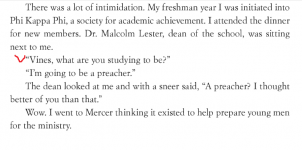Alexey86
Senior Member
- Joined
- Nov 3, 2018
- Member Type
- Student or Learner
- Native Language
- Russian
- Home Country
- Russian Federation
- Current Location
- Russian Federation
Hello! How can I turn the statement "He is studying to be a teacher" into a question? Should it be "What is he studying?" or "What is he studying to be?"?
Last edited by a moderator:
